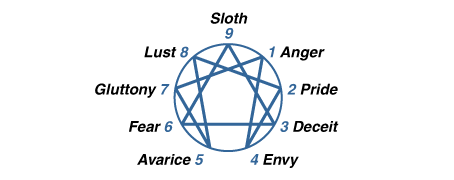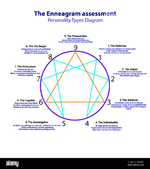Mind Maverick
Well-known member
- Joined
- Jan 17, 2018
- Messages
- 4,767
The entire Enneagram is founded upon logical fallacies and postulates many things.
It purports that...
1) We each have one main core fear. Why is there only one strongest one, and why is everyone only confined to these nine?
2) Not only are there are only nine options for which "core" fear we identify with, there are also only nine "defense mechanisms" we have. That implies that there is only one way people can respond to each of these nine "core fear" options.
This is essentially a False Dilemma fallacy.
3) This core fear can never change. Why is this assumed to be true, especially when parts of psychology show us otherwise? Why does it state that we can never rewire our brains so that these "types" are no longer our default setting? All we really have to do is alter core beliefs, perspectives, understandings, etc. to change several of those fears. Reprogramming our minds.
Why is this one "core fear" associated with personality, anyway?
The entire thing is just dribbling with fallacious logic and mystical, magical thinking. It's founded upon several unfounded assumptions.
It purports that...
1) We each have one main core fear. Why is there only one strongest one, and why is everyone only confined to these nine?
2) Not only are there are only nine options for which "core" fear we identify with, there are also only nine "defense mechanisms" we have. That implies that there is only one way people can respond to each of these nine "core fear" options.
This is essentially a False Dilemma fallacy.
3) This core fear can never change. Why is this assumed to be true, especially when parts of psychology show us otherwise? Why does it state that we can never rewire our brains so that these "types" are no longer our default setting? All we really have to do is alter core beliefs, perspectives, understandings, etc. to change several of those fears. Reprogramming our minds.
Why is this one "core fear" associated with personality, anyway?
The entire thing is just dribbling with fallacious logic and mystical, magical thinking. It's founded upon several unfounded assumptions.
Last edited:



